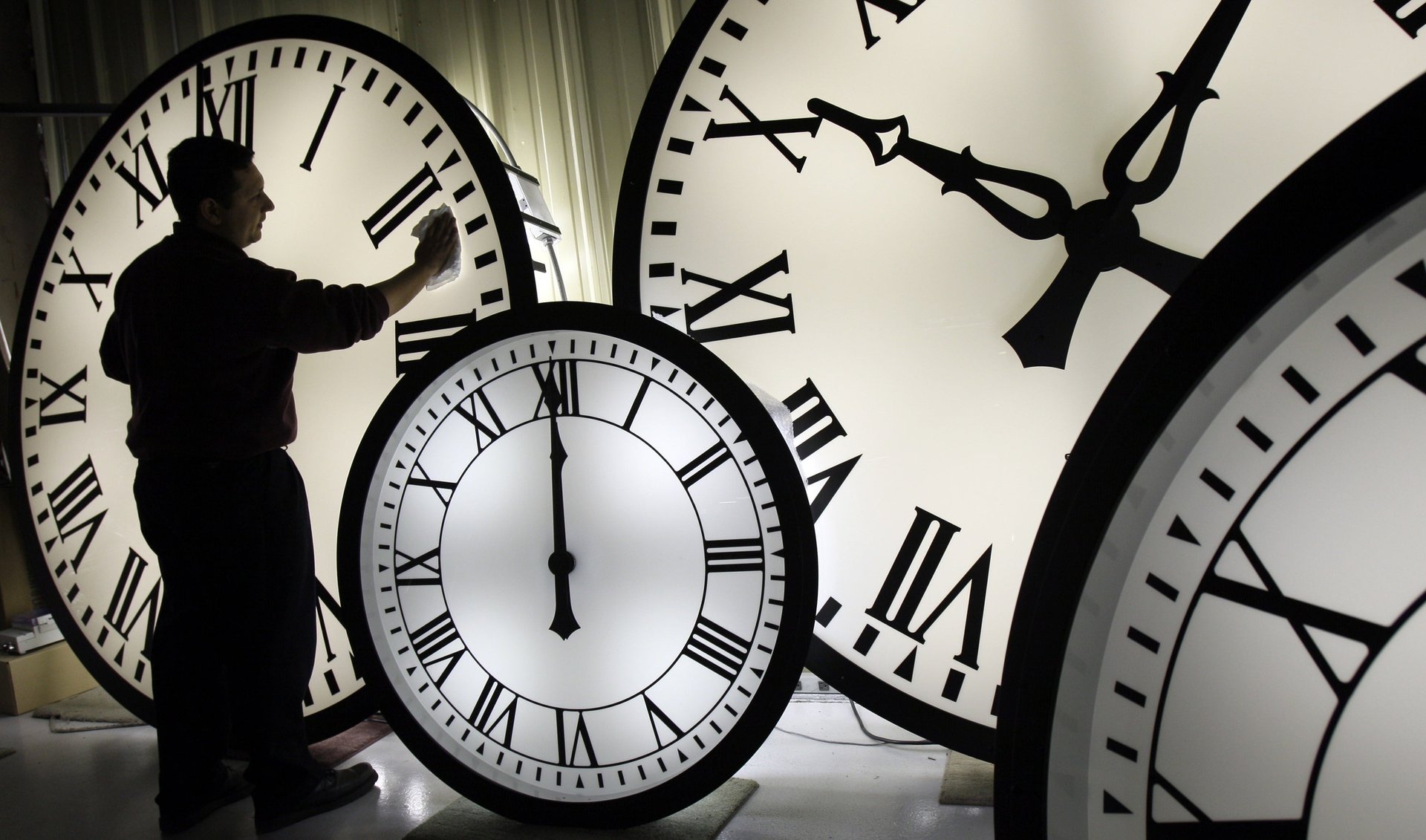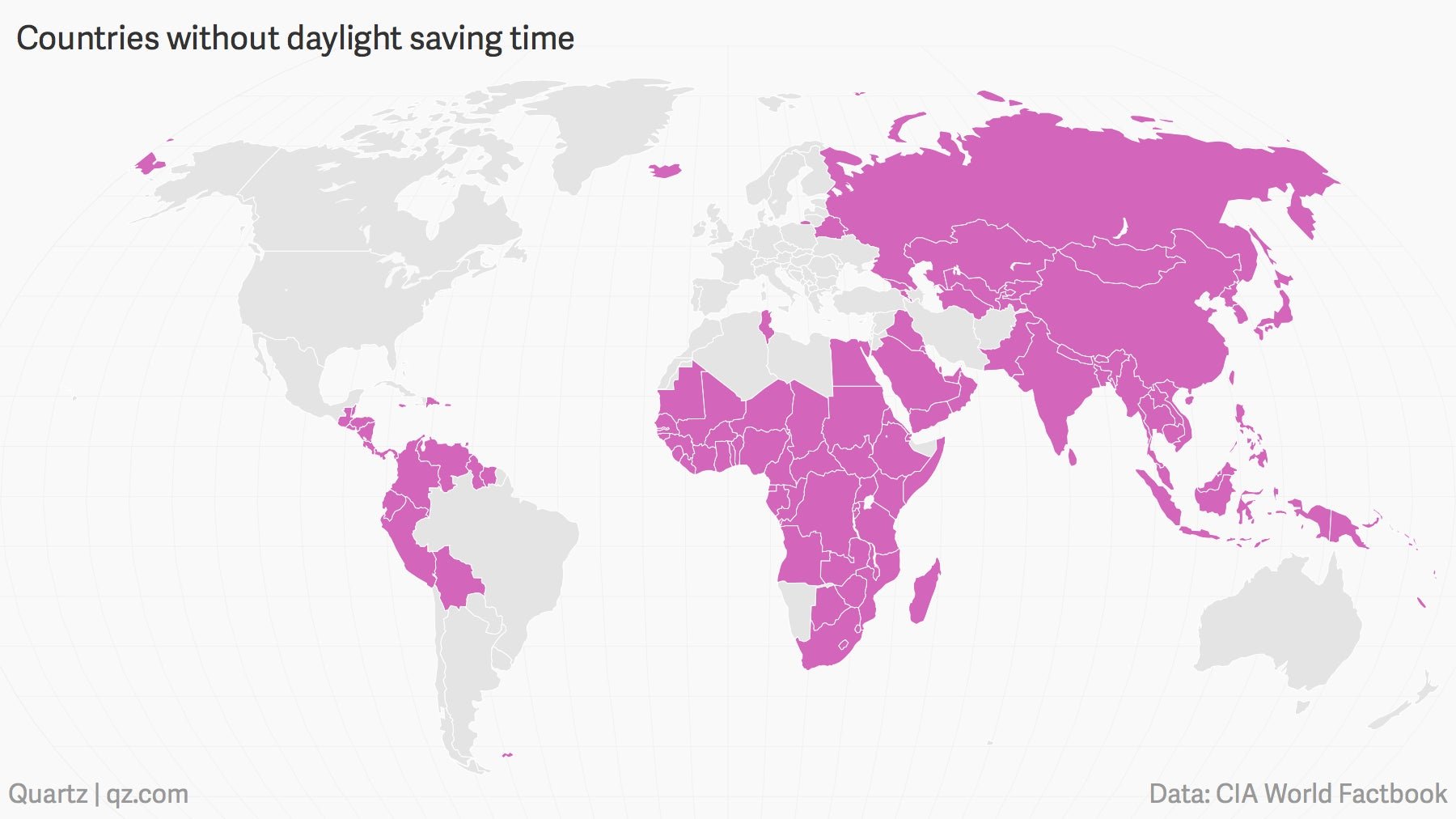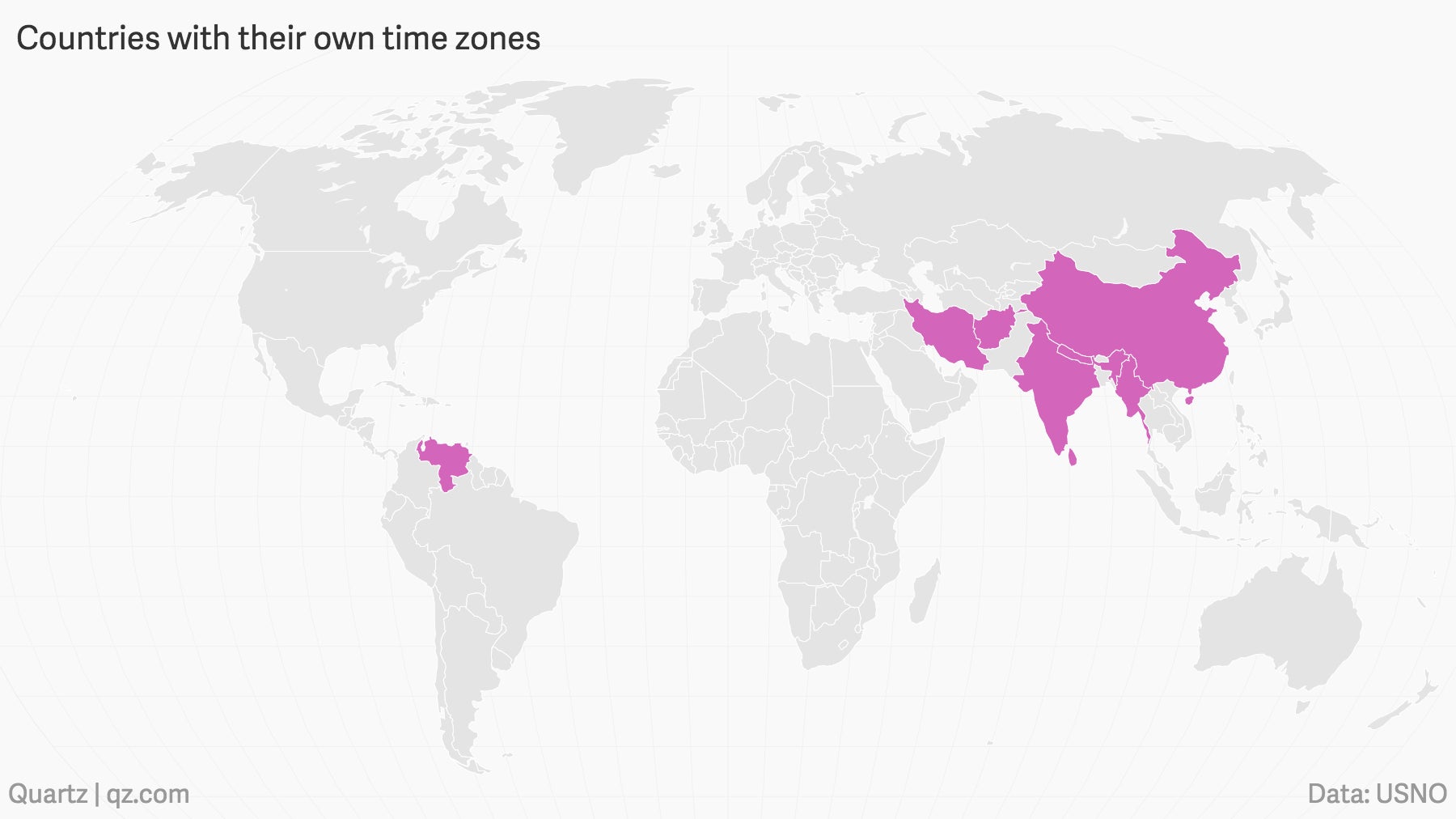Time Zone Deviants, Part II: If you think daylight saving time seems completely arbitrary, you’re right
If you set your clock forward this weekend for daylight saving time, you’re actually in the minority. Yes, of the 235 sovereign countries and territories listed in the CIA World Fact Book, the great majority simply roll with the amount of sunlight allotted by nature and habit.


If you set your clock forward this weekend for daylight saving time, you’re actually in the minority. Yes, of the 235 sovereign countries and territories listed in the CIA World Fact Book, the great majority simply roll with the amount of sunlight allotted by nature and habit.
First implemented by Germany in 1916 (the US followed suit in 1918), the practice is much less widespread than you might think. Only 82 nations wake up earlier in spring en masse in order to enjoy more daylight in the evenings, and most are concentrated in the Americas and Europe.
Interestingly, even among these countries, there is little agreement about how or when is best to do make the switch: most European countries wait until Mar. 29 to adjust their clocks, while the US, Canada, Cuba and Bermuda (among others) do it on Mar. 8. Across the southern hemisphere, where summer and winter are reversed, countries that observe daylight saving time (DST) move time in the opposite direction, so as the United States leaps forward, Uruguay falls behind.

The United States is a victim of daylight saving creep. In the 1980s, pressed by a group of businesses collectively known as the Daylight Saving Time Coalition, Congress stretched DST start and end dates to lengthen the annual ”summer time” period. The Energy Policy Act of 2005 continue this trend, switching the DST start date to early March instead of April.
A common misapprehension is that DST saves energy by providing natural light during working hours instead of electricity, but according to a 2008 Department of Energy study, clock-switching in the US saves less than 1% of annual national energy consumption. What little we do save is likely offset by the fact that increased daylight hours encourage consumers to spend more. Today, the National Association of Convenience Stores names the lengthening of the United States’ daylight saving period among its greatest achievements in 50 years of lobbying.
But it’s not all about profits. In 2011, Russia decided to give leaping ahead and falling behind a shot in order to be better in sync with Europe. Perhaps embittered by last year’s series of EU sanctions, Putin decreed a switch back to permanent “winter time” at the close of 2014. Joining Moscow time in solidarity were two other territories: Crimea, annexed by Russia in Mar. 2014, and Ukraine’s breakaway “peoples’ republics” of Donetsk and Luhansk.
For other countries, defying the West’s biannual shifts is more than just a political statement. Eight countries in the world actually operate under their own time zones instead of Coordinated Universal Time (UTC), and in those eight countries live roughly 40% of the human population. The reasons for self-designating a time zone are myriad, but we’ve identified two common threads.

One reason is readily admitted by some of the governments in question, a number of which are ruled by authoritarian regimes: national unity. All of China, for example, from Shanghai on the eastern coast to the westernmost reaches of Xinjiang, operates under China Standard Time—otherwise known as Beijing Time—which is eight hours ahead of Greenwich Mean. Looking at a map of global time zones, one realizes that China’s single time zone overlaps with four others, varying five to nine hours ahead of Greenwich Mean.
This means should you cross the border from China into another country with its own time zone, Afghanistan, you would gain three hours!
The second rationale is less likely to be stated officially—probably because it is not all that rational. In India, Sri Lanka, and Myanmar, for example, officials seem to derive a bit of delicious satisfaction from disrupting the time as defined by the UK’s Royal Observatory in Greenwich. Meanwhile, when recently deceased Venezuelan president Hugo Chávez engineered a special time zone for his own country in 2007—hora legal de Venezuela, or Venezuelan Legal Time, which is offset from EST by 30 minutes in summer, 90 minutes in winter—he claimed it was for reasons of productivity. “I don’t care if they call me crazy, the new time will go ahead,” he said, according to the BBC, explaining that pulling more morning hours into full daylight would make ordinary Venezuelans more motivated to work.
“But critics say the move is unnecessary and the president simply wants to be in a different time zone from his arch-rival, the United States,” the BBC reported.
And it’s not just countries who play time like a game. Other places that consciously deviate from the UTC system include the Canadian province of Newfoundland, the Australian states of Northern Territory and South Australia, and Kaliningrad Oblast—a Russian exclave wedged between Poland and Lithuania calibrated to Moscow time. Passing over the border to Poland entails a time change of two hours, whereas traveling from Warsaw to Kiev (significantly further east than Kaliningrad), one only loses an hour.